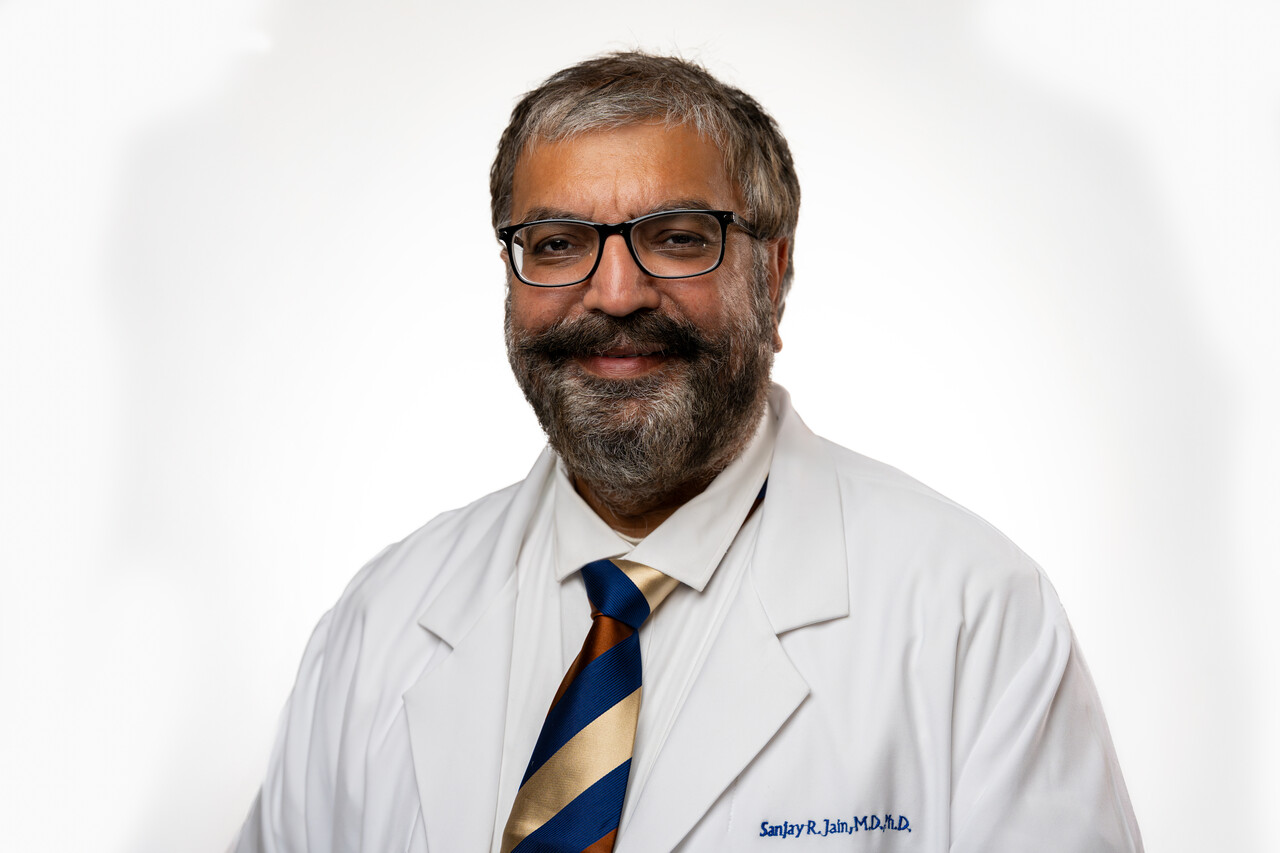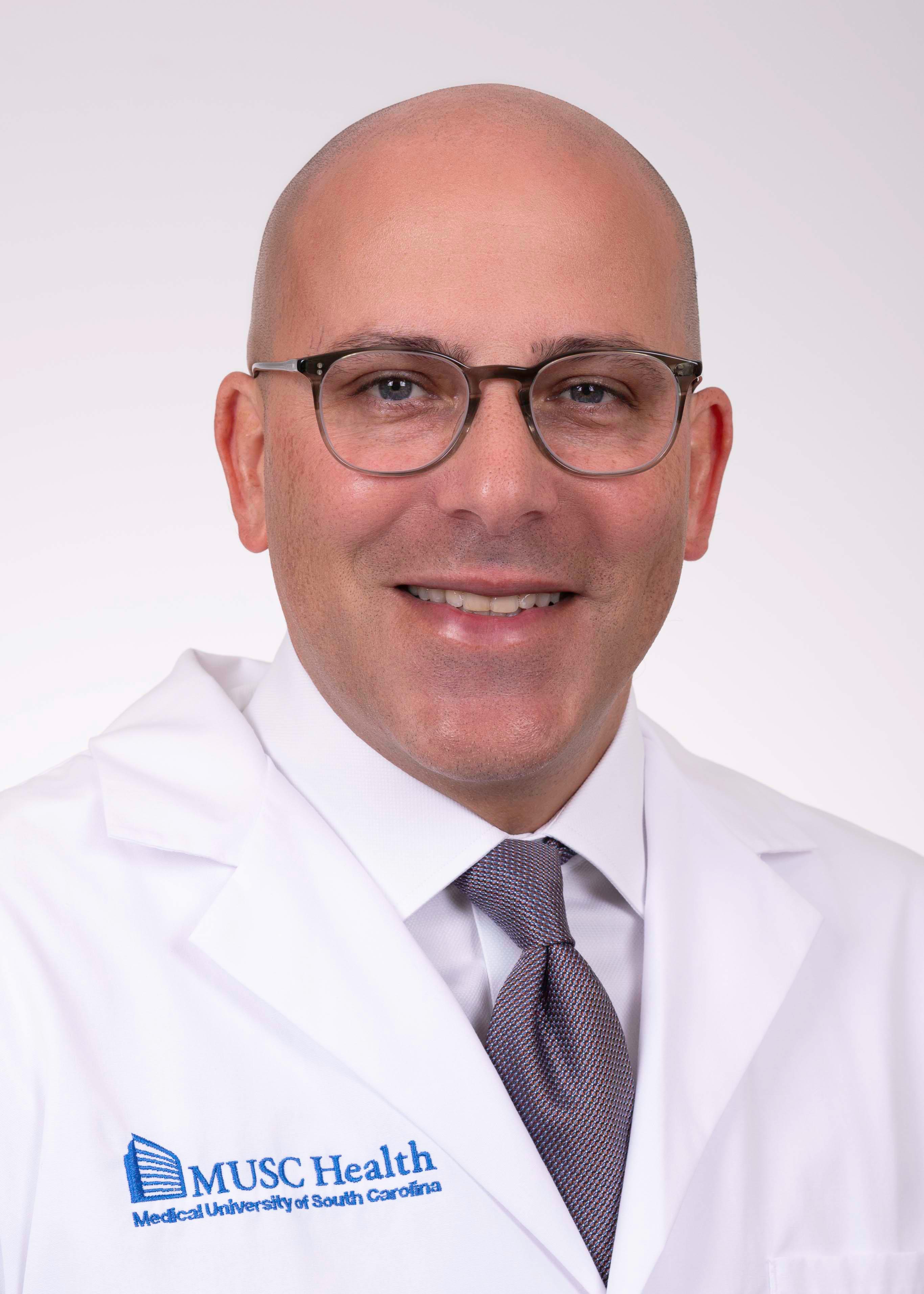Next-Day Access
For patients with newly diagnosed, non-metastatic abdominal cancers, we offer next-day access to our surgeons so you can discuss a treatment plan right away.

MUSC Hollings Cancer Center is a national leader in treating gastrointestinal cancers. We work in close collaboration with the MUSC Health Digestive Disease Center, rated highly for many years for the treatment of these diseases by U.S. News and World Report. Gastrointestinal cancers include:
Though they are all part of the digestive system, each of these cancers is distinct. If you or a loved one has been diagnosed with one of these cancers, then a gastrointestinal cancer specialist who understands their differences can be your best guide through your treatment choices. Our specialists work in multidisciplinary teams that include medical oncologists, radiation oncologists, surgical oncologists, radiologists, pathologists, nurse coordinators, an oncology dietitian and researchers in the lab.
Our Next-Day Access program for newly diagnosed, non-metastatic stomach and hepato-pancreato-biliary cancers means that you can start working with your team almost immediately. Our team’s goal is to ensure you receive the highest quality, most up-to-date care tailored to your needs.
MUSC Hollings Cancer Center has been recognized as High Performing in Colon Cancer Surgery in the 2025–2026 U.S. News & World Report rankings. This distinction reflects our expertise in complex colon cancer procedures and commitment to better outcomes for patients across South Carolina.

For patients with newly diagnosed, non-metastatic abdominal cancers, we offer next-day access to our surgeons so you can discuss a treatment plan right away.
Screening for colon cancer is recommended for anyone over age 45. If you have a family history or are at increased risk, earlier screenings may be necessary.
A multidisciplinary team of specialists at MUSC Hollings Cancer Center focuses on managing care for people at risk of hereditary diffuse gastric cancer.
This disease is 100% preventable if you get screened and know the signs and symptoms. I let my symptoms go on for so long because I thought this was predominantly diagnosed in older men.
At Hollings, you have the benefit of a multidisciplinary team of specialists with deep expertise in specific types of GI cancers. Our doctors don’t just follow the latest developments in treatment – they’re also doing the research. This means you will have a treatment plan tailored to your specific diagnosis and your individual needs.
Treatment options depend on how advanced the cancer is when it’s found. More details can be found on each of the specific cancer pages or by talking to your doctor. In general, options can include:
Our team is continually updating our techniques and technology to ensure that we can offer the least invasive, most personalized options to you.
To refer a gastrointestinal cancer patient to Hollings, please call the appropriate patient referral coordinator:
Our gastrointestinal cancer nurse navigators, Sara Sneed, BSN, RN (colorectal), and Anthony DeMeo, MSN, RN (hepatobiliary/pancreas/stomach), will help you understand what to expect during treatment and answer questions you may have.






As a National Cancer Institute-designated cancer center, we firmly believe that clinical trials are an important part of cancer care. Clinical trials show us whether new treatments work better than existing treatments. That’s important for future patients. But clinical trials are also important for current patients, because they offer the possibility of early access to new therapies or protocols that could become the standard-of-care in the future.
We offer a variety of gastrointestinal cancer clinical trials, including trials developed by researchers here at Hollings, industry trials and trials organized by other cancer centers. Some trials focus on new therapies, while others test new ideas for supportive care or screening. Learn more about clinical trials at Hollings and see our current gastrointestinal cancer clinical trials and trials for specific types of gastrointestinal cancer:
Hollings is also a member of NRG Oncology and the Alliance for Clinical Trials in Oncology. These cooperative groups organize multi-institution cancer clinical trials that happen across the country. Through membership in these groups, Hollings is able to offer a wider range of clinical trials.
Ask your doctor if there is a clinical trial that fits your needs.
Catching gastrointestinal cancer early is key to improved outcomes. Many digestive cancers may present with no or mild symptoms, which makes routine screenings critical. Colorectal cancer is becoming more common among people under the age of 50.
Hollings offers you preventative screenings like colonoscopies, which are recommended for anyone over the age of 45. If you have an increased risk or a family history of colorectal cancer, earlier screenings may be necessary.
Some genetic mutations that run in families can put people at higher risk of certain types of cancer, like pancreatic, colon or stomach cancer.
The Hollings Hereditary Cancer Clinic provides a centralized location to coordinate and manage risk management for people with these cancer-causing genetic mutations.
Our team of doctors and researchers are leading the way in gastrointestinal research to help save lives around the world. Areas of focus include examining differences among people when it comes to diagnosis and survival, looking at reasons behind early onset colorectal cancer and looking at ways to reduce the burden of tobacco use in South Carolina.
Recent projects include:
In addition, Hollings’ dedicated Colon Transdisciplinary Cancer Team and Pancreatic Transdisciplinary Cancer Team bring together expertise from different disciplines in basic and clinical research for monthly meetings to collaborate on ongoing gastrointestinal cancer research.


